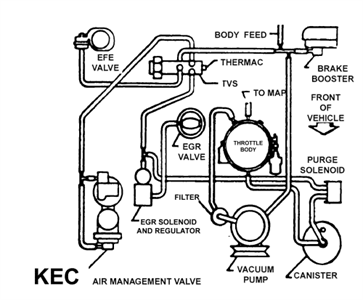I have a 1984 cadillac deville.the brake pedal feels hard.ihave relaced the vacuum pump,but no change.any ideas?


Fig. 33: Vacuum circuits - 1984 V8 4.1L engine Calif. (DFI)
Hope helps. Just keep in mind that your feedback is important
and I'll appreciate your time and consideration if you leave some
testimonial comment. Have a nice weekend and thanks for using FixYa.
Jose.
724 views
Usually answered in minutes!
×